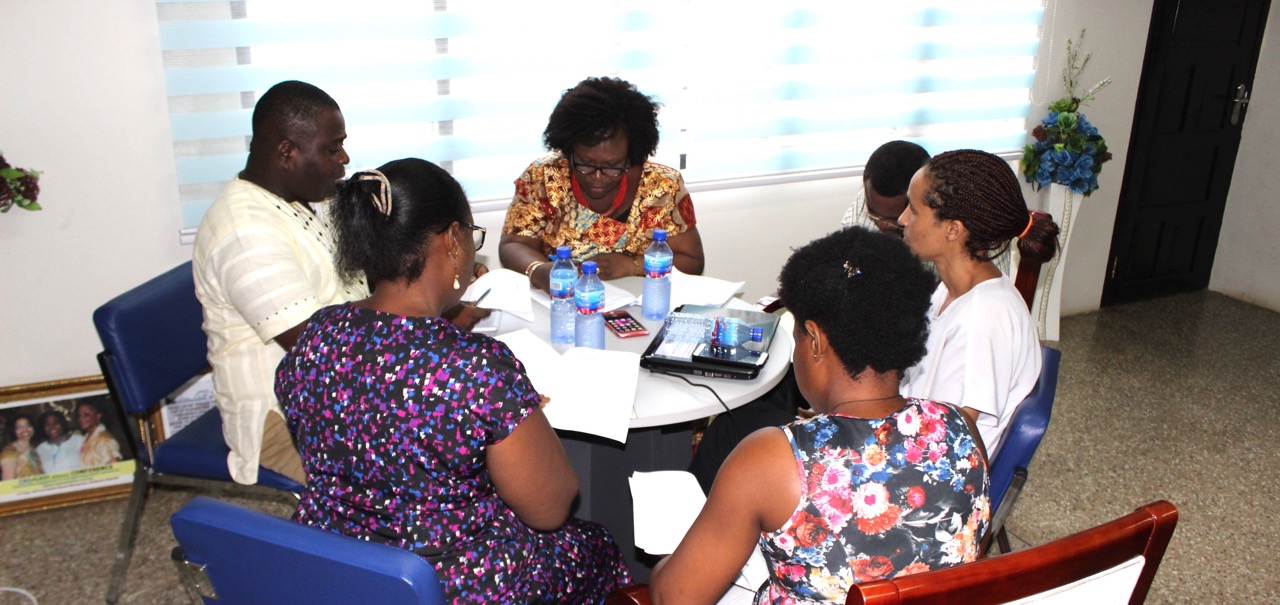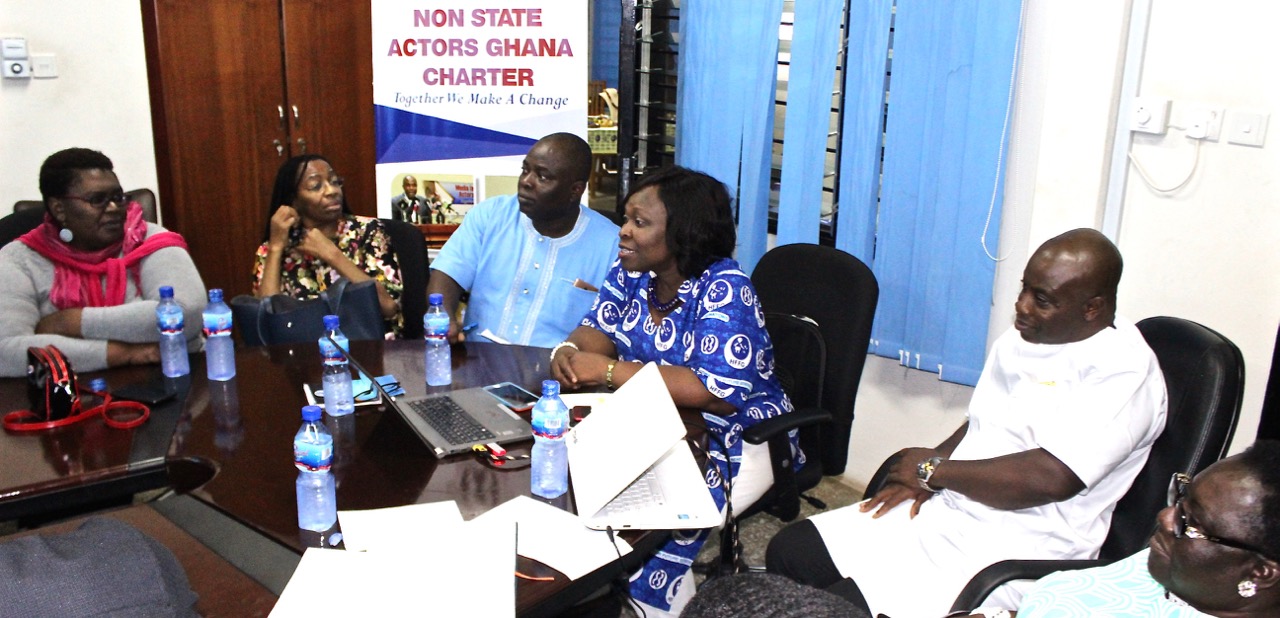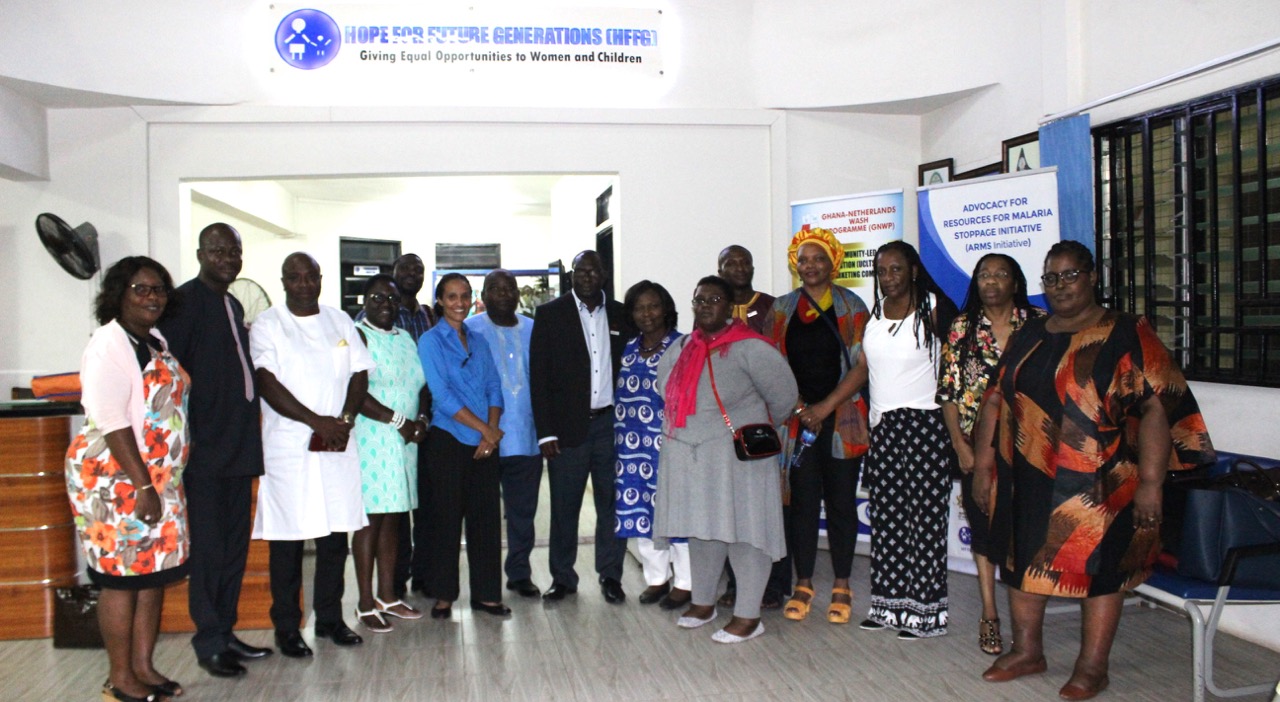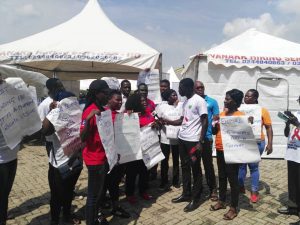The significant roles played by Non-state Actors (NSA) in global health especially in advancement and promotion of public health have been recognized all over the world in the last few decades. The World Health Organization (WHO) which is the global entity responsible for directing and coordinating authority in global health in line with its constitutional mandate has adopted a Framework of Engagement with Non-State Actors (FENSA) to strengthen its engagement with Non-State Actors (NGOs, private sector entities, philanthropic foundations, and academic institutions) while protecting its work from potential risks such as conflict of interest, reputational risks, and undue influence.
There are many non-state actors (NSAs) operating in the health sector in Ghana providing various services that contribute to reduction in disease burden and other positive health outcomes. Most of these NSAs belong to various coalitions and associations. The Country Coordinating Mechanism (CCM) of the Global Fund provides the biggest opportunity for most of the NSA platforms to work together where they are represented as a constituent alongside two other groupings namely state actors and development partners.
With the technical support of EANNASO the NSA Ghana platform was formed around March last year. Some of our first achievements are outlined below:
Inception Meetings
A four member management committee made up of members of the lead organisation were form to lead the implementation of the project. Three planning meetings were held to identify the consultant, the modalities for implementation and a clear roadmap developed for the project
Recruitment of consultant
A number of CVs were evaluated and one consultant was selected and contract signed.

Mapping and identification of NSAs
Mapping was done and relevant organisations were identified to be part of the programme. About fifty organisations made up of CSO, KAP, private sector, faith based organisations, youth groups, community traditional leaders, and the media signed on to the project
Early Achievements – Development of NSA Charter
In order to consolidate its advocacy activities, the NSAs lead by the Lead Organisations namely HFFG, WAAF, SWAA and Clikgold, developed the NSAs charter through a series of consultative meetings with the platform supported by the facilitator. The charter outlined among other things the vision, mission, goal and objectives of the NSAs platform; guiding principles; governance structure; membership; strategic focus; priority issues for advocacy; and funding. Please find a copy of the charter attached. This was circulated to NSA members for input and finalization.
Fund request process and NSAs engagement
Prior to the consultative meeting and the resultant priorities which were submitted to the CCM, representative of CSOs and other NSAs constituencies have fully participated in the country dialogue, the fund request writing, and also participated in CCM meetings to finalize the fund request to GF. There were a series of Country Dialogues the first of which occurred on 24th February 2017 for Malaria. This was followed on 28th February for TB/HIV, and 29th March for RSSH. Three Joint working sessions were formed, one for TB/HIV, one for Malaria and one for RSSH with CS activiely participating in the technical working groups. The TB/HIV and Malaria working sessions started working on 28th February, while RSSH writing team started its work on 30th March. The dialogue process was supposed to be ongoing, and the writing teams’ works were shared with CCM and NSAs constituencies

NSAs Consultative meetings
The NSA consultative meeting was to sensitize and solicit their input into the priority issues and interventions for inclusion in the Global Fund request. In preparation for the meeting a summary NSA concept note was drafted and sent to the participants ahead of the meeting to inform them of the intentions of the NSA platform. A data gathering tool was also drafted to collect views and priorities from the participants at the meeting. The consultative meeting was held at the Christ the King Hall in Accra on 16th May 2017. The meeting brought together representatives from over CSOs, KAP, private sector, faith based organisations, youth groups, community traditional leaders. There was a welcome address and the purpose of the NSA platform in Ghana from Mrs Cecilia Senoo, the Executive Director of HFFG.in her address she she stressed that the NSA platform was not a replacement for any other coalition or network but rather a rallying point for all these stakeholders to achieve the common voice and utilize the space available for us. She also expressed her gratitude to EANNASO for supporting the establishment of NSAs in Ghana.
In his address CCM Chairman expressed his gratitude to EANNASO for supporting the establishment of this platform which never existed in Ghana. He was hopeful that the NSAs would have a stronger voice and the capacity to monitor the implementation of GF in country and other health sector resources. He highlighted the importance of accountability and transparency amongst both state and non-state actors. He pledged CCM’s support to the platform and encouraged the platform to work with other networks for stronger voice.
Samuel Boateng Arthur from Clikgold also shared the findings of the CCM CSOs Shadow Report and Scorecard which was sponsored by EANNASO. The report identified weak coordination and communication among CSOs representatives on the CCM, and also poor engagement among constituents.
CCM secretariat did a presentation on the Global Fund structure and grant making processes. She outlined the role of NSAs in the implementation of GF in country. She encouraged the NSAs to use the Global Fund and CCM websites for more information.
Dr. Naa Ashiley Vanderpuye from WAAF did a presentation on the ongoing country fund request processes and the status of the Ghana’s fund request. NSAs were encouraged to identify space and gaps in the fund request and make input for CCM’s consideration.
A representative of WHO did a presentation on what NSAs are, best practices of NSAs across the globe and strategies for formation and strengthening of NSAs in Ghana. He indicated that WHO has recognizes the strategic role of NSAs in the world and has developed a framework for engagement of NSAs now.
As part of input of NSAs priorities into the fund request for Ghana, a questionnaire was developed and shared with participants to identify priority areas for inclusion into the fund request.
* * *

NSA Ghana Activities in Communities – Achievements so far:
- Participation in Zero discrimination day celebrations.
- Media engagement on the first 100 days of president Akofo Addo
- NSA meeting with Ministry of Health held at the CCM office
- NSA participation in the TB conference
- NSA participation in the Philanthropy Forum
- NSA participation in ICASA
- NSA participation in a meeting organized by GHANET
- NSA’s investigation of expired HIV/AIDs drugs which an investigation was conducted and a report put together and submitted to NACP
- Global Fund CSO’s mapping
* * *
ACHIEVEMENTS OF NSA GHANA.
- NSA Ghana currently has 45 members, very diverse membership – Community traditional leaders, Persons living with diseases, Youth groups CBOs, Coalitions CSO in malaria, TB and HIV, the private sector, media and KP groups and Network of NGOs working in Key Population.
- NSA was able to monitor the commodity situation in the country and issued press release calling on Government and other state institutions to immediately make sure condom and TB drugs are available to people who need them.
- NSA since its inception has organized 10 media engagements informing Ghanaians on the issues affecting smooth implementation of TB, HIV and Malaria in Ghana.
- NSA Ghana has representations in all the 10 regions of Ghana working in the various districts and Municipalities.
- NSA spends minimum resources on administrative cost because the hosting of the office is among members across the regions.
- NSA Ghana though very young has established systems and structures, including relevant policies to guide its activities.
- NSA Ghana has a website with information of members organisations.
- Is active on social media and has very strong communication among members.
- NSA led the process of engaging CSOs during the submission of the Funding Request to the GF to ensure they were part of the country dialogue so as to make meaningful contributions to the submission. A CSO priority charter was also developed

